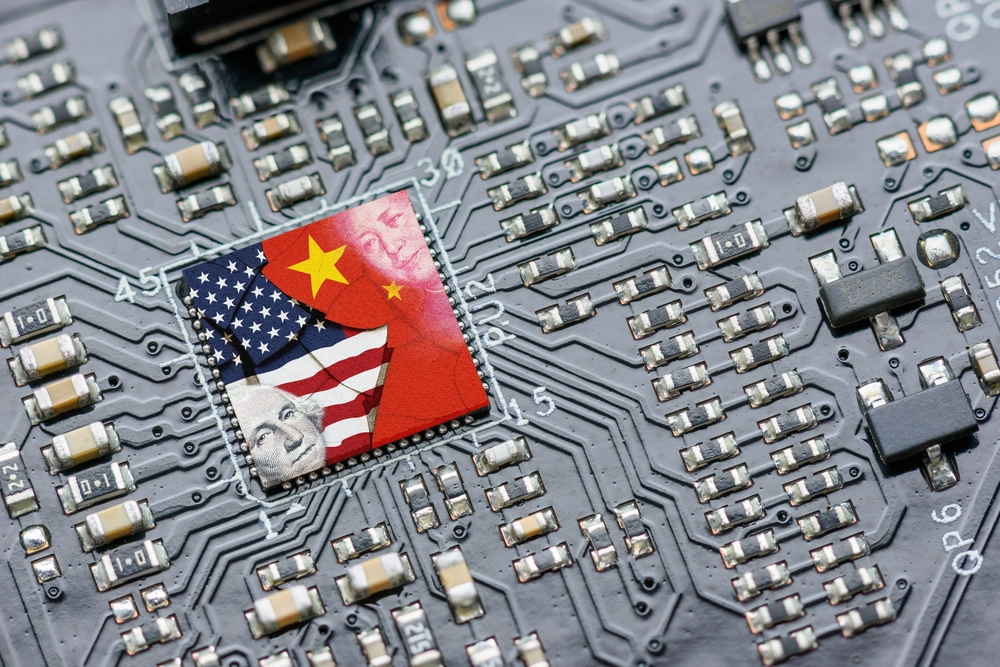The US government has mandated that Nvidia immediately halt its AI GPU chip exports to China.
Nvidia stated that the new ban, originally expected in November, comes into effect immediately.
In an update to its investors on Tuesday, Nvidia attempted to minimize the impact of the chip ban, asserting that it does not foresee a “meaningful impact on its financial results,” given the “strength of demand for the company’s products worldwide.”
The new regulations have been enacted ahead of trade discussions between Washington and Beijing and precede President Xi Jinping’s forthcoming visit to the US next month.
Over the past year, a surge in demand for Nvidia chips has resulted in a more than 200% increase in Nvidia’s stock price, propelling it to become one of the world’s most highly valued businesses with a market cap exceeding $1 trillion.
To understand these latest trade embargos, we must head back to the start of the year, when the US started throttleing high-end AI hardware exports to Russia, China, and Iran.
GPU chips manufactured by companies like Nvidia are instrumental to AI development, and the US wants to maintain its lead on China in the ‘AI race.’
This doesn’t just include AI-related chips, either, but other hardware related to AI, machine learning, data centers, and cloud computing. US firms are also severing their research collaborations with Chinese companies.
The latest in a long series of export bans
The first bans restricted the export of high-specification AI chips.
Specifically, the US sought to prevent Chinese companies from building supercomputers with performance of over 100 FP64 PetaFLOPS or over 200 FP32 PetaFLOPS within certain physical size constraints.
Nvidia compensated for this by limiting their flagship A100 and H100 chips and creating the less powerful China-friendly H800 and A800 versions.
Chinese firms proceeded to order thousands of these chips to the tune of billions of dollars. The new regulations close this loophole, affecting the A800 and H800 models as well as the new L40S processor.
Chip sales are still permitted if the government grants a license from the US Department of Commerce’s Bureau of Industry and Security, but they’re reportedly seldom granted.
This created a unique black market for high-end Nvidia chips in China, which will surely persist as the US further tightens its controls.

The US is chiefly concerned these technologies will be used for military and intelligence purposes.
“These export controls are intended to protect technologies that have clear national security or human rights implications,” Gina Raimondo, the US Commerce Secretary, said of the new bans.
The US is also convincing other countries to cut off AI hardware exports to Iran, Russia, China, and, to a lesser extent, the Middle East.
In anticipation of the upcoming trade discussions, China’s finance ministry has communicated its “concerns” regarding the export curbs to US officials.
China’s AI industry has roared into action this year with numerous model releases, and the country plans to build its own self-sufficient chip manufacturing industry over the coming years.





